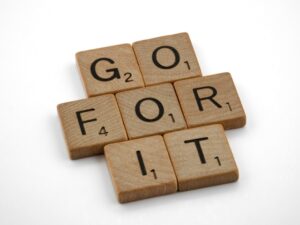“What are you still carrying that isn’t yours and is weighing you down?”
—Rita S. Wilkins, lifestyle design expert
Some of the heaviest things in life don’t show up on the bathroom scale.
They are worries, expectations, and “shoulds” that somehow ended up in your mental backpack without your permission.
Take a moment and imagine emptying that backpack onto a table. What’s in there that actually belongs to someone else?
- A parent’s voice about who you should be?
- A friend’s drama you keep replaying?
- An ancient rule that says you must keep everyone happy?
EXERCISE:
Picture yourself picking up only what’s truly yours and leaving the rest in a nice neat “lost and found” pile.
You might notice you stand a little taller, walk a little lighter, and suddenly have more energy for the life that actually fits you!














